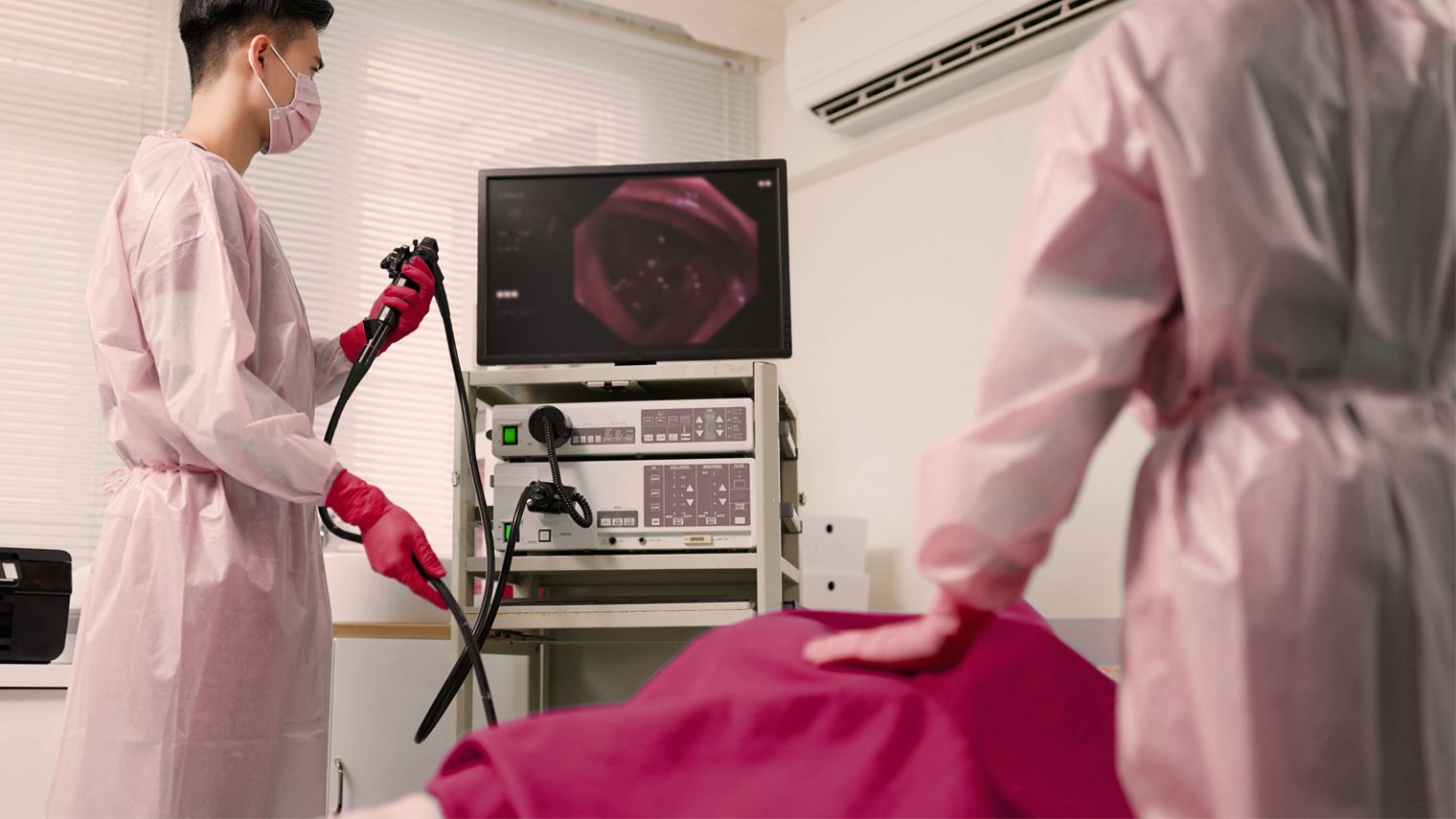I Got Breast Cancer at 37. Why I’m Screening for Colon Cancer Too
April 26, 2024
Content created for the Bezzy community and sponsored by our partners. Learn More

Photography by Pony Wang/Getty Images
The BRCA gene is connected to more than just breast cancer. Recent research indicates there may be a link with colon cancer. This factor combined with family history may be a good reason to screen.
As the genetic counselor from the cancer center went over the results of my lab work, I couldn’t believe what I heard. She informed me I’d tested positive for the BRCA2 gene mutation.
While that certainly explained why I developed breast cancer at age 37, I remained perplexed.
No one in my family had received a diagnosis of breast or ovarian cancers, the two most commonly linked to the mutation. So what did being BRCA-positive really mean for me?
After learning more and consulting my oncologist, I began a pancreatic cancer screening regimen in 2022. This year, I’ll begin screening for colon cancer too.
Read on to learn the facts around colon cancer, BRCA, and why screening matters.


BRCA isn’t just about breast cancer
As I became more familiar with my diagnosis, I learned BRCA1 and 2 mutations carry a higher risk of several cancers, not just breast cancer.
These include:
- ovarian
- pancreatic
- prostate
- fallopian tube
- primary peritoneal
- melanoma
And some studies also draw a link between the mutations and a higher risk of colon cancer.
This stood out as a red flag. While my mother passed away at a young age in a car accident, her mother had both colon and pancreatic cancers that eventually metastasized to her liver.
How common is colon cancer?
Excluding skin cancers, colorectal cancer is the third-most common cancer diagnosis for both women and men in the United States, according to the American Cancer Society.
In 2024, the American Cancer Society estimates that around 106,590 new people will receive a diagnosis of colon cancer in the United States.
The organization also estimates that the lifetime risk of developing colorectal cancer is about 1 in 23 for males and 1 in 25 for females, depending on risk factors, which can increase that rate for some.
The risk of colorectal cancer increases with age. Other factors such as family history or having inflammatory bowel disease like Crohn’s also put you at a higher likelihood of developing the condition.
Lifestyle factors can increase risk as well, including:
- lack of physical activity
- a low fiber and high fat diet
- regular or excessive alcohol consumption
- tobacco use
- obesity
What’s the connection between BRCA mutations and colon cancer?
While colon cancer isn’t yet on the official list of cancers directly linked to BRCA mutations, more recent studies have explored a potential connection.
A review from 2023 analyzed several studies published between 1994 and 2021 exploring the risk between BRCA mutations and colorectal cancer.
The review authors found a prevalence of BRCA mutations in people with colorectal cancer. Their research also suggested a possible link between BRCA and young-onset colorectal cancer among those ages 18–50.
Their findings led the review authors to suggest that BRCA genes could potentially be included in the colorectal cancer genetic testing panel.
How do you screen for colon cancer?
The U.S. Preventive Services Task Force recommends that adults ages 45–75 be screened for colorectal cancer. Several options for screening include:
Stool tests
These noninvasive tests require collecting a stool sample and sending it to a lab for analysis.
Types include:
- guaiac-based fecal occult blood test (gFOBT), which uses the chemical guaiac to detect blood in the stool
- fecal immunochemical test (FIT), which uses antibodies to detect blood in the stool
- the FIT-DNA test, which analyzes an entire bowel movement for altered DNA and blood
Healthcare professionals generally conduct stool tests on people who are at average risk of developing colon cancer.
Flexible sigmoidoscopy
This test involves the doctor inserting a short, thin, flexible, lighted tube into the rectum to check for cancer or polyps in the rectum and lower third of the colon.
Colonoscopy
The most commonly known method for colorectal cancer screening, this test is similar to the flexible sigmoidoscopy, but the doctor uses a longer tube to check for polyps and cancer in the entire colon along with the rectum.
The doctor can also remove some polyps and cancers during this test.
Due to my family history, personal cancer history, and age, my doctor and I chose to perform a colonoscopy as my screening protocol.
CT colonography
Also known as a virtual colonoscopy, this test uses X-rays and computers to take images of the entire colon.
When to talk with your doctor about colon cancer screening
If you’re concerned about colon cancer, or even if it’s not on your radar, it’s important to talk with your doctor about the pros and cons of starting a screening protocol.
If you have a BRCA mutation with a history of colorectal cancer or polyps in your family, or if you have another genetic syndrome such as familial adenomatous polyposis or Lynch syndrome, you could be at a higher risk of developing colon cancer.
Takeaway
For me, having a BRCA mutation and a family history of colon cancer made the decision to get a colonoscopy easier to make.
I also started the conversation with my oncologist years prior, and we determined my risk factors made screening the next logical step in my cancer prevention process.
Medically reviewed on April 26, 2024
7 Sources


Like the story? React, bookmark, or share below:
Have thoughts or suggestions about this article? Email us at article-feedback@bezzy.com.
About the author